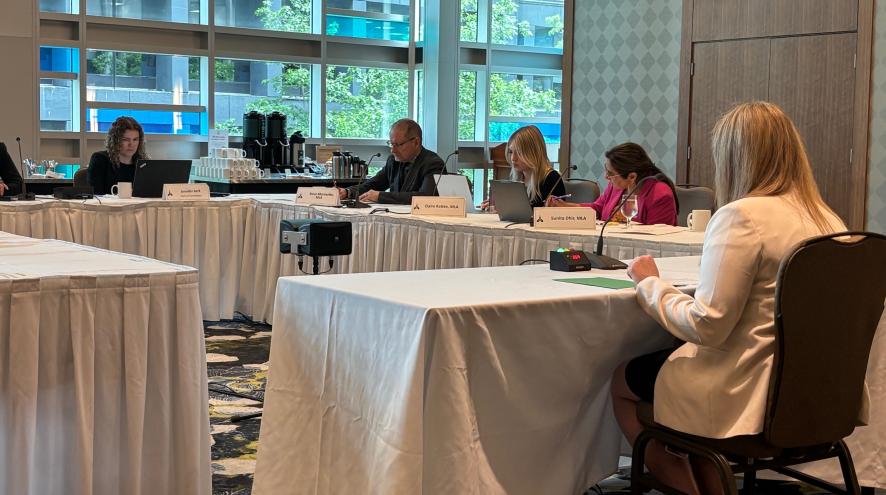Alzheimer Society of B.C. presents recommendations for the B.C. 2026 provincial budget
Learn about our recent presentation to the Select Standing Committee on Finance and Government Services.

Today, during B.C. Seniors’ Week (June 1 to 7), the Alzheimer Society of B.C. presented to the Select Standing Committee on Finance and Government Services as part of the public consultation process for British Columbia’s 2026 provincial budget.
In her remarks, Rebecca Frederick (Director, Community Engagement) outlined three key recommendations to improve the lives of the more than 85,000 people currently living with dementia in the province — a number expected to nearly triple by 2050. These recommendations are grounded in the experiences of people with lived experience of dementia and aim to reduce stigma, improve the diagnostic process and ensure timely access to appropriate supports.
“Being affected by dementia will never be easy,” said Frederick, “but there are steps the provincial government can take to make the experience more manageable for people across B.C.”
Our recommendations include:
- Investing $10 million in a three-year, provincewide public awareness campaign to combat stigma and social isolation, which continue to delay diagnoses and discourage people from seeking help.
- Improving the diagnosis experience by creating a clear dementia care pathway and providing incentives to attract and retain geriatric specialists.
- Committing $4.2 million annually to support the Alzheimer Society of B.C.’s First Link® dementia support, which connects individuals and families with information, education, and care navigation at the time of diagnosis and beyond.
- Expanding access to services by eliminating co-pay fees for publicly funded home care, increasing adult day programs and long-term care capacity, and reviewing assisted living to better support people with dementia.
In sharing the stories and experiences of the people we support, we illustrated the human cost of inaction and the urgent need for systemic change. Delays in diagnosis, lack of coordinated care, and limited access to services are putting pressure on families and the health-care system alike.
“Our vision is a world without Alzheimer’s disease and other dementias,” Frederick said. “That vision begins with a society where people affected by dementia are welcomed, supported, and included. These budget decisions can help bring us closer to that reality.”
To learn more about advocacy, check out our Speaking up guide here.
